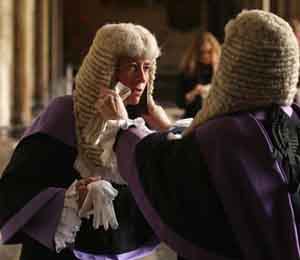On March 19, 1649, England’s House of Commons passed an act abolishing the House of Lords, declaring it “useless and dangerous to the people of England.”
This was during Oliver Cromwell’s rule as Lord Protector, after the execution of Charles I. The House of Lords did not again meet until the Convention Parliament of 1660, under the Restoration of the monarchy.

1 reply on “House of Lords”
The more recent disintegration of the House of Lords was caused by a once popular though now obscure American economic thinker, Henry George.
George, based upon crackpot Ricardian thinking, proposed to replace all other taxes with a tax on land. The proposal appealed to the presumptions of many people in many nations, including those of Great Britain.
Even those with no intention of repealing all other taxes drew upon Georgist theory and sentiment to argue for more taxation of land.
The Lords, whose wealth tended to be based in holdings of land, found the idea signally unappealing. A fight developed between the House of Commons and the House of Lords.
When the King sided with the politicians of the Commons, that did it for the Lords, because he could pack the House of Lords and threatened to do so.
And the Lords didn’t merely have to accept the tax; they were compelled to accept the supremacy of the House of Commons, to the point that it could utterly change the constitution of the House of Lords, which it eventually did.